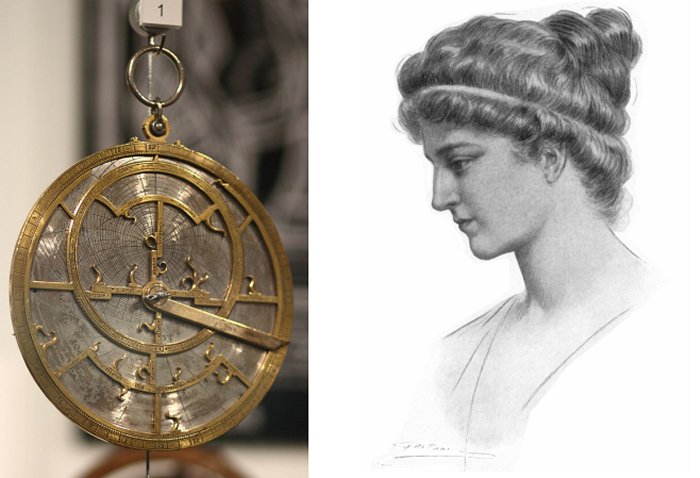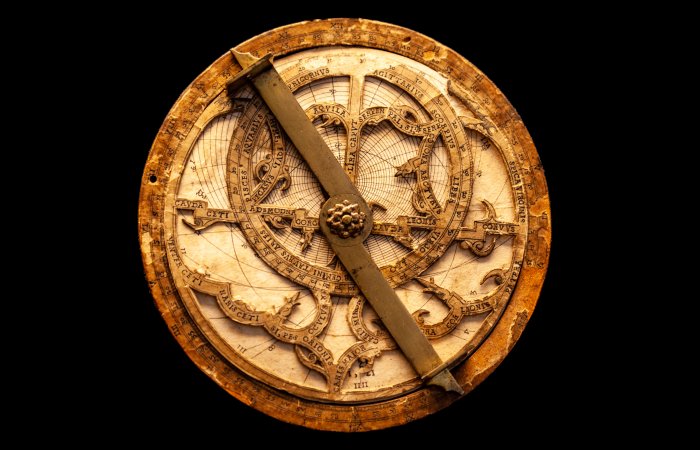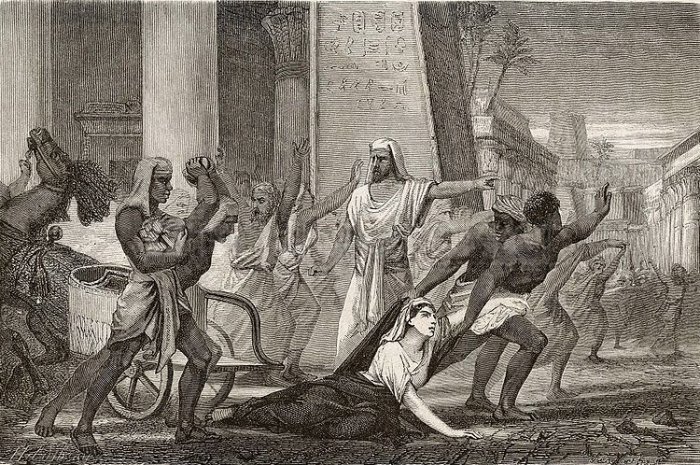Hypatia Of Alexandria – Brilliant, Controversial Scientist And Her Dramatic End
Ellen Lloyd - AncientPages.com - Hypatia was a great ancient scholar who was more interested in science than religion. Her quest for scientific knowledge was admirable but clouded her judgment. She sometimes forgot or ignored the reality of the world she was living in.
Hypatia's accomplishments and fatal ending serve as a reminder that it takes time before most people can embrace new ideas, and there will always be those who are reluctant to change in society. Her death shows the true meaning of religious intolerance and the consequences thereof.
Left: A planispheric astrolabe from the workshop of Jean Fusoris in Paris circa 1400, on display at the Putnam Gallery in the Harvard Science Center. Image credit: Public Doman - Right: Portrait of Hypatia by Jules Maurice Gaspard (1862–1919). Image credit: Public Domain
In ancient times, scientists were often accused of witchcraft. Scholars were treated with suspicion. The line between science and superstition was thin. What should be classified as science, magic, or occult knowledge was debated.
The life story of Hypatia has captivated many generations. It is a sad story about a woman who dedicated her entire life to science and teaching. It was unfortunate for Hypatia that she lived during a time when people valued religion more than scientific progress. Today we know that science and religion can co-exist and even complement each other, but this was not the case not so long ago.
Being falsely accused of witchcraft and caught between two religious fractions, Hypatia met a gruesome death.
Who Was Hypatia?
There is not much information about Hypatia's life. According to historical records, Hypatia was the daughter of the Greek scientist Theon of Alexandria. Who her mother was, is unknown. Hypatia was born sometime between 370 A.D. and 350 A.D. She was raised in Alexandria, a city in Egypt that was founded by Alexander the Great shortly after he was crowned Pharaoh and declared the son of God Amun.
During the time of Hypatia, Alexandria was part of the Roman Empire. Hypatia's father was a mathematician and astronomer, and she most likely inherited her scientific curiosity from him. Theon was also interested in astrology and the art of interpreting gods' wishes by studying birds' songs. Hypatia did not devote her time to occult studies. She was passionate about mathematics, astronomy, and philosophy and constructed several scientific instruments. She built many astrolabes, but she did not invent them.
These instruments were already used at least 500 years before Hypatia was born.
Astrolabes were sophisticated ancient computers used to determine how the sky looked at a specific place at a given time. The oldest astrolabes date back to two thousand years ago.
Credit: Adobe Stock - markrhiggins
Choosing a life without religion was dangerous, especially in an area where Christianity was spreading rapidly. However, it seems religion was irrelevant to Hypatia, a prominent thinker of the Neoplatonic school in Alexandria. Though several sources refer to her as being a Pagan, there is also evidence that she did not worship any gods, and she was not a Christian either.
Among her students were student were Christians, Pagans, and some Jews. Her young male students loved her, and she gained political influence through them, but her contact with influential people did not prevent her from being killed.
Hypatia lived on her own, never married, and remained a virgin. Those who tried to pursue a romance with her always failed as she was not interested in love relationships.
Marvelous Treasures Kept In The Serapeum Were Destroyed
In the Serapeum, a temple dedicated to the Greco-Egyptian god Serapis, there was a magnificent book treasure consisting of valuable literature and works used by Hypatia and her students. Inside the temple was also a huge blue statue of the god Serapis covered in gold and precious stones. The temple housed an offshoot collection of the Great Library of Alexandria.
One man who was eager to get rid of the Serapeum was Pope Theophilus of Alexandria. The Roman Empire declared Christianity the official state religion, and those with other religious beliefs were persecuted.
View of the Serapeum remains in Alexandria. Image credit: Daniel Mayer, Public Domain, CC BY-SA 4.0
In 391 A.D., Theophilus ordered troops to destroy the Serapeum. It should have been easy, but many Pagans sacrificed their lives to protect their gods and treasures in the temple. It took some time, but eventually, Christians gained control over the temple. The giant statue of the god Serapis was smashed to pieces. Many of the temple's treasures were sold, and money was distributed among the poor. All the books in the temple were burnt, and the Serapeum was rebuilt and turned into a Christian church.
It should be noted that although Pope Theophilus was responsible for the destruction of the Serapeum, the Great Library of Alexandria had already ceased to exist in any recognizable form centuries before Hypatia's birth.
Drawing from the Alexandrian World Chronicle depicting Pope Theophilus of Alexandria, gospel in hand, standing triumphantly atop the Serapeum in 391 AD. Image credit: Public Domain
During this time, many people converted to Christianity. It seemed the most logical thing to do if you were willing to accept the religious change in the country.
Hypatia's Life Became Much More Difficult When Pope Theophilus Died
Pope Theophilus of Alexandria had no real issue with Hypatia. He tolerated her school, admired her scientific quest for knowledge, and even allowed her to establish close relationships with Roman prefects and other prominent political leaders. Thanks to the Pope's tolerance, Hypatia became a famous person with political influence in Alexandria. However, when Pope Theophilus of Alexandria died in 412 A.D., Hypatia's situation changed dramatically. Theophilus' nephew Cyril was made Pope or Patriarch of Alexandria, but only after a riot between his supporters and those of his rival Archdeacon Timotheus.
There were frequent clashes between Pagans, Christians, and Jews.
Angry Mob Murdered Hypatia Of Alexandria
Hypatia was protected by her close friend Orestes, the Roman prefect of Alexandria. However, Orestes was in a political feud with Cyril. When tension between the two parties rose, Cyril accused Hypatia of preventing Orestes from reconciling with him. She was also accused of witchcraft.
Illustration by Louis Figuier, from 1866, representing the author's imagining of what the assault against Hypatia might have looked like. Image credit: Public Domain
In 415 A.D., when Hypatia was on her way home after finishing her lectures at the university she was attacked by an angry mob of Christian monks. They dragged her to a church, where they stripped her naked and burned her.
Hypatia of Alexandria whose thoughts, ideas, and behavior were much ahead of time could not survive in a world that wasn't ready for people like her. No one deserves a fate like the one that met Hypatia whose life and death have been featured in movies and books.
Left: Cyril of Alexandria (412-444), against whom Oreste clashed. Image credit: Public Doman Right: Cyril of Alexandria was later declared saint. Image credit: Public Domain, CC BY-SA 3.0
Christianity arose in power, and Alexandria lost its importance as an intellectual and cultural center. Cyril gave orders to burn the University of Alexandria and demolish Pagan temples. Intellectuals and artists either fled the country willingly or were deported.
The Church declared Cyril a saint, and Christians were grateful to him for suppressing Paganism and fighting for the true faith. Modern scholars suggest that Hypatia was part of the basis for the legend of Saint Catherine of Alexandria, who confronted 50 Pagan philosophers and was sentenced to death.
Updated on February 8, 2023
Written by Ellen Lloyd – AncientPages.com
Copyright © AncientPages.com All rights reserved. This material may not be published, broadcast, rewritten or redistributed in whole or part without the express written permission of AncientPages.com
Expand for referencesMore From Ancient Pages
-
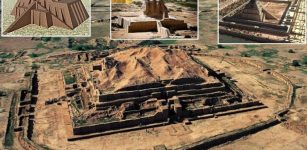 Ziggurats, Axis Mundi And Strong Connection To Religion In Mesopotamia
Featured Stories | Mar 17, 2021
Ziggurats, Axis Mundi And Strong Connection To Religion In Mesopotamia
Featured Stories | Mar 17, 2021 -
 Graveyards Of Ancient British And French Giants Revealed In Old Documents And Journals
Ancient Mysteries | Jul 4, 2020
Graveyards Of Ancient British And French Giants Revealed In Old Documents And Journals
Ancient Mysteries | Jul 4, 2020 -
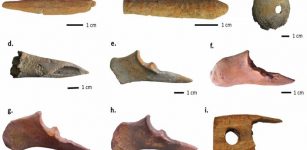 More Sophisticated Manufacturing In The Bronze Age – New Evidence
Archaeology | Jun 27, 2020
More Sophisticated Manufacturing In The Bronze Age – New Evidence
Archaeology | Jun 27, 2020 -
 The Battle Of Anghiari – Lost Painting Of Leonardo Da Vinci – One Of Art History’s Greatest Mysteries
Artifacts | Jan 24, 2018
The Battle Of Anghiari – Lost Painting Of Leonardo Da Vinci – One Of Art History’s Greatest Mysteries
Artifacts | Jan 24, 2018 -
 Mysterious Kola Pyramids Built By An Unknown Lost Ancient Civilization Can Rewrite Ancient History
Civilizations | Aug 3, 2020
Mysterious Kola Pyramids Built By An Unknown Lost Ancient Civilization Can Rewrite Ancient History
Civilizations | Aug 3, 2020 -
 Unusual Discovery Of A Bronze Age Axe In Norway – Is An Unknown 3,000-Year-Old Shipwreck Nearby?
Archaeology | Jul 19, 2024
Unusual Discovery Of A Bronze Age Axe In Norway – Is An Unknown 3,000-Year-Old Shipwreck Nearby?
Archaeology | Jul 19, 2024 -
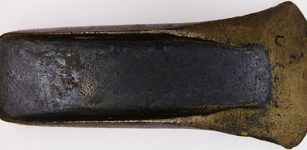 Truth Behind Mysterious Ancient Metal Depositions Revealed By Scientists
Archaeology | Dec 8, 2021
Truth Behind Mysterious Ancient Metal Depositions Revealed By Scientists
Archaeology | Dec 8, 2021 -
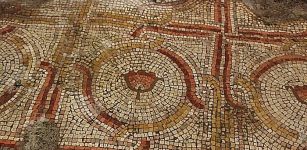 Ancient Mosaic Floor Decorated With Colorful Floral Designs Re-Uncovered After 40 Years
Archaeology | Mar 25, 2023
Ancient Mosaic Floor Decorated With Colorful Floral Designs Re-Uncovered After 40 Years
Archaeology | Mar 25, 2023 -
 Researchers Confirm Museum Shrunken Head As Human Remains
Archaeology | Aug 4, 2022
Researchers Confirm Museum Shrunken Head As Human Remains
Archaeology | Aug 4, 2022 -
 On This Day In History: Gutenberg Prints The First Bible – On Feb 23, 1455
News | Feb 23, 2017
On This Day In History: Gutenberg Prints The First Bible – On Feb 23, 1455
News | Feb 23, 2017 -
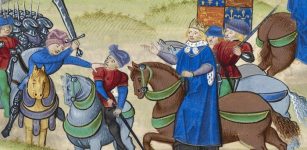 On This Day In History: Peasants’ Revolt First Great Popular Uprising In English History – On June 12, 1381
News | Jun 12, 2016
On This Day In History: Peasants’ Revolt First Great Popular Uprising In English History – On June 12, 1381
News | Jun 12, 2016 -
 Mysterious Rock Art By Unknown Ancient Culture Found In Venezuela
Archaeology | Jul 5, 2024
Mysterious Rock Art By Unknown Ancient Culture Found In Venezuela
Archaeology | Jul 5, 2024 -
 Fossilized Skulls Reveal Relatives Of Today’s Rhinos Had No Horn And Died Out 5 Million Years Ago
Fossils | Nov 2, 2023
Fossilized Skulls Reveal Relatives Of Today’s Rhinos Had No Horn And Died Out 5 Million Years Ago
Fossils | Nov 2, 2023 -
 Mysterious Otherworldly Creatures Witnessed By Biblical Prophet – What Happened?
Ancient Mysteries | Jun 30, 2020
Mysterious Otherworldly Creatures Witnessed By Biblical Prophet – What Happened?
Ancient Mysteries | Jun 30, 2020 -
 Unique Tomb Of Roman Noblewoman Caecilia Metella Reveals Secrets Of Ancient Concrete Resilience
Archaeology | Oct 14, 2021
Unique Tomb Of Roman Noblewoman Caecilia Metella Reveals Secrets Of Ancient Concrete Resilience
Archaeology | Oct 14, 2021 -
 Peculiar Ancient Ruins That Can Re-Write History Of Florida Found By Archaeologists
Featured Stories | Jul 28, 2024
Peculiar Ancient Ruins That Can Re-Write History Of Florida Found By Archaeologists
Featured Stories | Jul 28, 2024 -
 Atlit Yam – Fate Of The 9,000-Year-Old Underwater Megalithic Site With A Huge Stone Circle
Featured Stories | Jun 14, 2021
Atlit Yam – Fate Of The 9,000-Year-Old Underwater Megalithic Site With A Huge Stone Circle
Featured Stories | Jun 14, 2021 -
 Forbidden Underwater Discovery Could Re-Write Ancient History But The Investigation Was Stopped
Ancient Mysteries | Aug 27, 2019
Forbidden Underwater Discovery Could Re-Write Ancient History But The Investigation Was Stopped
Ancient Mysteries | Aug 27, 2019 -
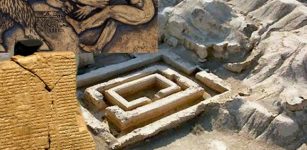 Walls Of Uruk Built By Sumerian King Gilgamesh 4,500 Years Ago
Featured Stories | Nov 28, 2015
Walls Of Uruk Built By Sumerian King Gilgamesh 4,500 Years Ago
Featured Stories | Nov 28, 2015 -
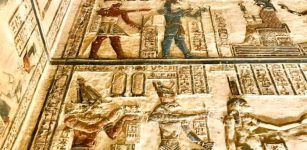 New Images From The Magnificent Dendera Temple Where Restoration Works Continue
News | Mar 15, 2022
New Images From The Magnificent Dendera Temple Where Restoration Works Continue
News | Mar 15, 2022

